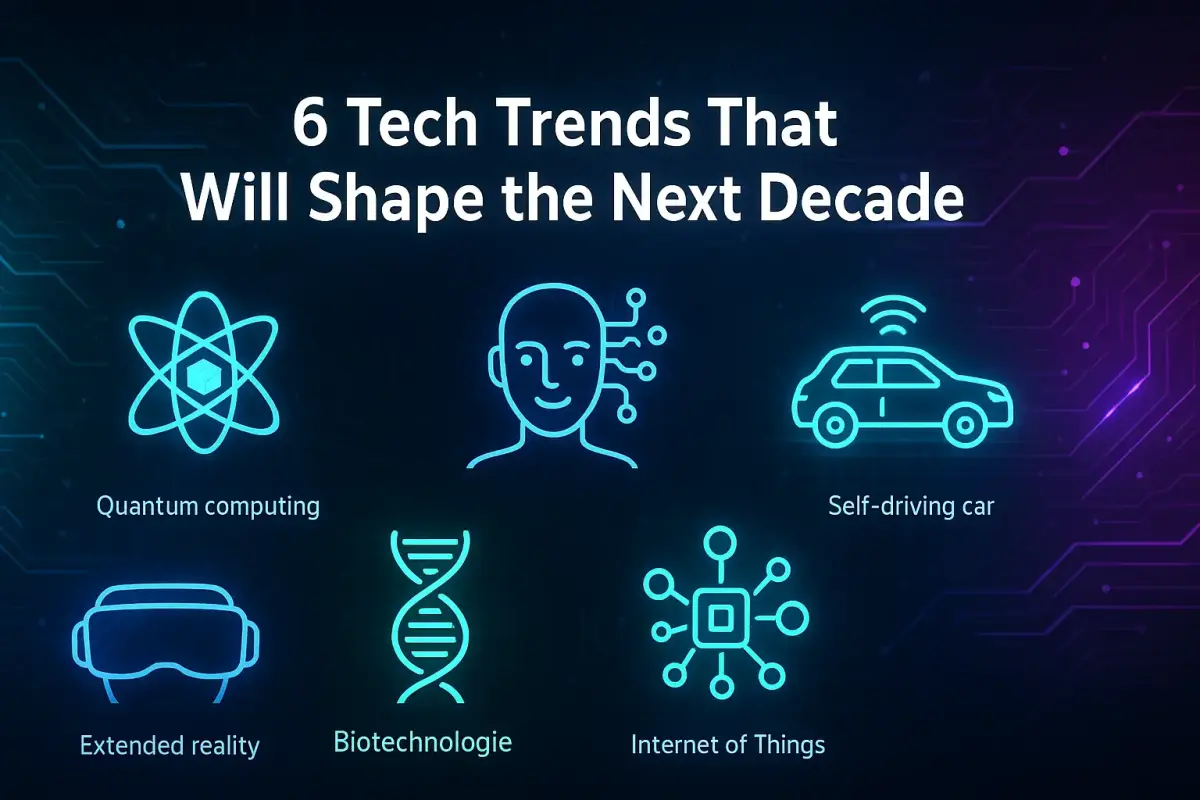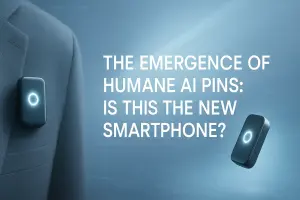The tech world is changing so fast as we usher into a new era, and it is going to change our lives in ways we have never seen before. A host of new technologies are poised to become ubiquitous as early as 2030, altering your body, your home, and the world around you, according to a recent report. Here, we take a look at six tech trends that are poised to define the next decade.
1. Quantum Computing
Quantum computing is expected to revolutionize fields with its ability to perform calculations at unimaginable speeds. Quantum computers use qubits instead of bits, which allows them to do more than one calculation at a time. IBM, Google, and newcomers like Rigetti Computing are all racing to build quantum computers of that scale.
- Potential Effect: In everyday life, quantum encryption might mean security for data in ways that could eliminate the need to hack.
- Industries: Quicker drug discovery — quantum simulations could greatly accelerate how quickly we're able to develop new drugs. For example, quantum algorithms are already being used to simulate how molecules interact, doing so better than classical computers.
- Society: Better climate models to see and respond to natural disasters.
- Challenges: Cost and technical challenges remain major hurdles. The quantum computers we have today require extremely low temperatures and make many errors. Developing efficient quantum error-correction algorithms for reliable computation is extremely important.
- Future Outlook: By 2030, quantum computing may solve problems previously believed impossible and disrupt discoveries within science, business, and security.
2. Apps Made by AI
AI is shifting from a tool to a creative partner. Generative AI models like GPT-4 and DALL·E are already capable of generating text, graphics, and even code that appears to have been written by a person. This movement is upending the way people create content, write software, and design things.
- Potential Impact: Custom education platforms that adapt to everyone's learning style and AI assistants that get the drudgery done.
- Industries: AI-created prototypes can accelerate design; AI-generated software development tools build and debug code.
- Society: Democratizing creativity, making it accessible to many who previously found it overpriced and underdelivering.
- Challenges: AI-generated content poses ethical questions about authorship, misinformation, and bias. Ensuring AI outputs align with societal values rather than reinforcing negative biases is crucial.
- What's Next: AI-generated apps will help people be more creative, but they need to be designed and regulated responsibly.
3. Self-Driving Cars
Self-driving cars, drones that can fly themselves, and robots that deliver objects to people's homes are all going to alter how people get around. Tesla, Waymo, and Amazon are among the companies steering this shift.
- Potential Effect: Fewer car crashes — over 90% of accidents today are due to human error, which autonomous systems can prevent.
- Industries: Self-driving cars and drones streamline supply chains and save significant costs in logistics.
- Society: Older and disabled people gain greater freedom of movement and independence.
- Challenges: Regulatory questions and public confidence are major obstacles. Cybersecurity risks exist as hackers can penetrate connected cars.
- Looking Ahead: Self-driving cars will be integral to smart cities, working alongside IoT and AI to build sustainable and environmentally friendly urban areas.
4. XR (Extended Reality)
XR technologies, such as Virtual Reality (VR), Augmented Reality (AR), and Mixed Reality (MR), are changing how we consume digital content. The XR market is expected to be worth more than $300 billion globally by 2030, driven by advances in both hardware and software.
- Potential Impact: Virtual travel and social interaction in immersive games and social media platforms becoming integral to daily life.
- Industries: Improved training simulations in healthcare, aviation, and manufacturing, reducing risk and cost.
- Society: Remote collaboration with global teams and virtual cultural interactions fostering better understanding.
- Challenges: High costs for research and hardware limit accessibility. Privacy concerns in virtual environments must be addressed.
- What's Coming: As XR devices become lighter, cheaper, and more powerful, they will revolutionize work, play, and communication.
5. Progress in Biotechnology
Biotechnology is advancing rapidly with new breakthroughs in CRISPR gene editing, personalized medicine, and synthetic biology. The first CRISPR-based treatments were approved by regulators in 2023, marking a significant step forward in treating genetic diseases.
- Potential Impact: Personalized, genome-based medical treatments could become more effective and less harmful.
- Industries: Drought-resistant, high-nutrition genetically engineered crops improve farming.
- Society: Artificial vaccines may eliminate genetic diseases and improve pandemic preparedness.
- Challenges: Ethical concerns about gene editing, especially germline modifications, and navigating complex regulations.
- What's Next: Biotechnology will continue to revolutionize medicine and agriculture, tackling some of humanity's toughest problems.
6. Rise of the Internet of Things (IoT)
The IoT ecosystem is expected to comprise more than 30 billion connected devices by 2030. These smart gadgets gather vast amounts of data, enabling businesses to operate more efficiently.
- Possible Effects: Energy-smart and burglar-proof homes become commonplace.
- Industries: Manufacturing benefits from predictive maintenance that reduces downtime and costs.
- Society: Smart-city projects improve transportation, waste management, and emergency response.
- Challenges: Protecting data from cyber-attacks and ensuring privacy. Seamless device connectivity remains a technical hurdle.
- Looking Ahead: The world will be more connected, with data-driven decisions making systems smoother, longer-lasting, and improving people's lives.
In the End
The next 10 years will bring astonishing technological advances that will change how we live, work, and communicate. These new technologies offer vast benefits but also raise important questions about ethics, regulation, and security. If used responsibly, these tools can help us tackle difficult problems and make the world a better place for all.


